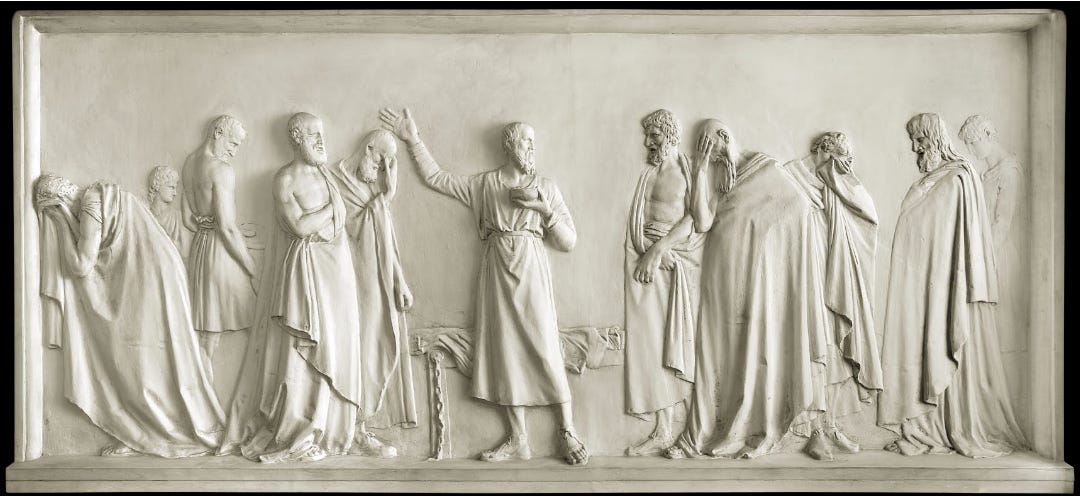A scientist's independence and disorientation
Reflections on science in an age of institutional ruination
Back when I was into nutrition science communication, it always struck me that no matter how much you would deep dive the data with people who believed in quackish alternative nutrition ideas, they would reaffirm their ideology. They were incapable of being open-minded.
I never would have believed that the establishment itself could be this way with regard to a number of medical topics. It was a rude awakening that shattered my worldview when I realized that there really wasn't one reliable authority to go to for everything. On some things, the government gets things right, and the alternative influencers are wrong. On other things, the government is wrong, and the alternative influencers are right.
This was very hard to accept because what it means is that it is impossible to know exactly who to trust on topics on which I have little expertise. Everything must be taken on a case-by-case basis. There is no perfectly uncorrupted authority on all topics. There are no perfectly good guys or perfectly bad guys; everything is in flux. And what was misinformation yesterday could be the science of today, and vice versa.
I am reminded of what Paul Feyerabend said: sometimes the most obscure sources and ways of thinking are actually the superior ones on certain topics, and the traditional and apparently solid ways of thinking about how to do science fail.
Despite the freedom that comes with this way of thinking, it is also quite dangerous. What it means is that I must determine for myself what is true and what isn't. But am I not as flawed as any other flawed person? Why should I rely on my own opinions?
And the answer here is that I shouldn't. I--all of us--should take our own opinions with a grain of salt, especially the ones we feel most certain about. We should always be open to learning something new from someone who has something to teach us.
And I think this returns us to the true spirit of science: science never can be embodied in any one centralized institution or authority because all institutions and authorities are always to varying degrees corrupted by their own worldliness, by their own motivations, by their groundedness in biological reality. And that's not just true of institutions or authorities also true of each and every one of us. We are all corrupted to varying degrees.
This means that science is never located in any one person or institution. Science is an endlessly ongoing discussion that takes place between people. It is not a body of knowledge per se but a constantly ongoing and endlessly imperfect discussion between human beings.
And a person or institution may be corrupt, but so long as that person or institution remains open to learning, there is hope, and that corruption can be undone.
Perhaps science from this point of view is not perfect knowledge free of corruption but an endlessly ongoing project of undoing corruption that is inherent to the way that biological beings will necessarily view the world.
If we accept that we ourselves are imperfect, flawed, and corrupt, and will never fully resolve those imperfections, but are willing everyday to strive to improve and learn--perhaps that *is* science. And science is nothing but that.
So what I have learned is that we do not need perfect knowledge, perfect authorities, perfect institutions. These can never exist anyway. What we do need is an openness to learn, and that's enough to get somewhere, keep growing in our understanding, and to do science.



Kevin, I agree with this...Never believe your own Bullsh*t is the foundation of most competent management education and certainly all competent sales education. Scientists/doctors are no different. The issue comes with understanding what is BS...and the answer is "anything you think may be". Keeping that in mind is the crux of doing the best that can be done.
i only have one strong disagreement with your tome -- in my long years of observing and trying to understand, I have learned that the government virtually NEVER gets it right -- and if they do, it is only by accident. They are, uniformly, acting for their own purposes and not for your good or the good of the population/country as a whole. This does not mean that they have not convinced themselves they are acting in your interests "because they know better". But they uniformly invoke a parent/child motif (you are the child, incidentally) except that parents actually have their children's interests at heart -- in the end, the bureaucrats and the legislators (but especially the bureaucrats) ONLY have their own interests in mind. Rarely, they overlap with yours, but that is an accident in virtually every case.
I have followed you for a while. Originally it was because I was looking for a view on a subject that was contrary to the one I was developing via social media influencers. I wanted to hear something from outside the echo chamber.
Eventually you turned me off because of an attitude that seemed more focused on confrontation and seemed completely certain of your positions. Now, I find your difficulties have given you more humility so I'm following you again.
My goal is to try and form an opinion for myself and strive to remain open to changing my mind. I view "facts" as having probabilities and believe that they are often variable depending on the individual. Most things in life are in the grey zone. Black and white thinking leads to our current societal fracture.
Your current work is more helpful for forming opinions.